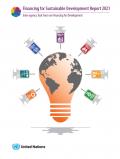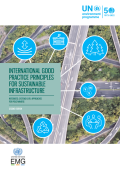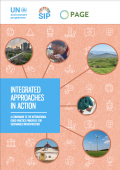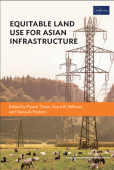
The 2021 Financing for Sustainable Development Report (FSDR) of the Inter-agency Task Force on Financing for Development warns that COVID-19 could lead to a lost decade for development. The report highlights the risk of a sharply diverging world in the near term where the gaps between rich and poor widen because some countries lack the necessary financial resources to combat the COVID-19 crisis and its socioeconomic impact. Short-term risks are compounded by growing systemic risks that threaten to further derail progress, such as climate change. The report recommends immediate actions to prevent this scenario and put forward solutions to mobilize investments in people and in infrastructure to rebuild better. It also lay outs reforms for the global financial and policy architecture to ensure that it is supportive of a sustainable and resilient recovery and aligned with the 2030 Agenda.
This report is the Urban Land Institute (ULI)'s first-ever outlook on issues that are specific to environmental, social, and governance (ESG)—a broad and critically important topic that affects every aspect of our businesses, our industry, and communities.

This report sets out ten guiding principles that policymakers can follow to help integrate sustainability into infrastructure planning and delivery. They are focused on integrated approaches and systems-level interventions that governments can make to create an enabling environment for sustainable infrastructure.

This report includes of a selection of case studies that illustrate each of the ten guiding principles which are featured in the first publication of this series on International Good Practice Principles for Sustainable Infrastructure.

The aim of this book is to set forth debate on alternative practices for land use management in urban development and public infrastructure projects in Asia.
